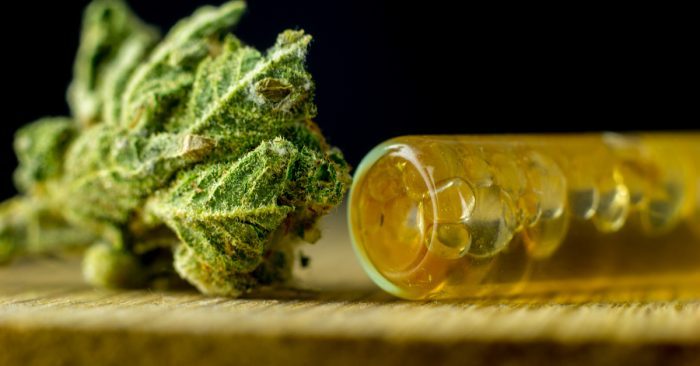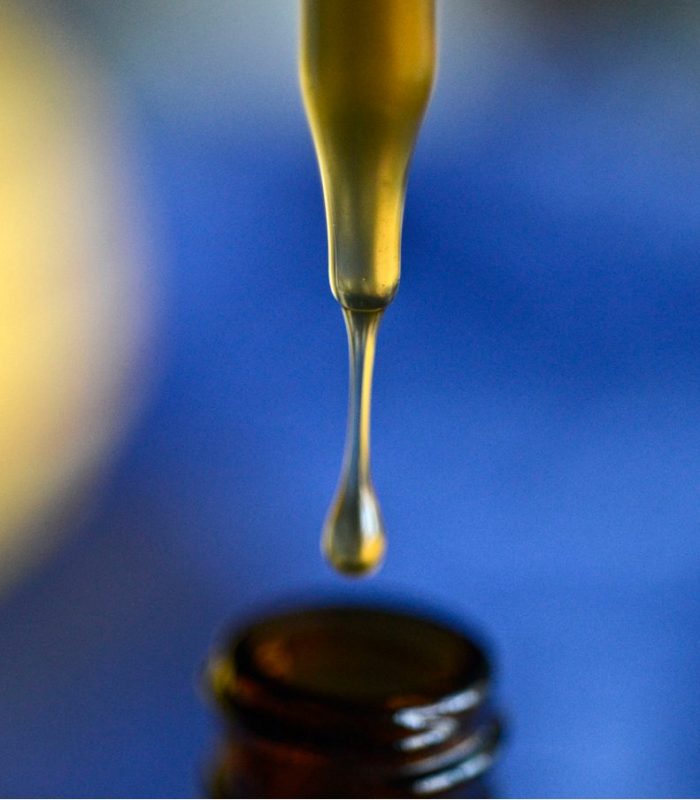To help you know what you are getting, here’s our guide to cannabis extracts.
The world of cannabis-based oils is rife with confusion. From obscure acronyms to sketchy definitions and with so much bad information out there, it can easily confuse you. To help out, here’s a handy guide to cannabis extracts, which can help you make informed decisions.
Guide to Cannabis Extracts – FECO: The Micro-Doser’s Dream
The full name spells out Full Extract Cannabis Oil and, as acronyms go, it’s a good one. Just like the name promises, FECO is pulled fully and directly from the cannabis plant (flowers, buds and seeds are usually used, but leaves are sometimes thrown in the mix).
To create FECO oil, manufacturers use food-grade chemical solvents to separate the resin from mushed up plant matter, siphoning off a small but highly concentrated treatment of active ingredients. Because it comes straight off the strain, FECO is strong stuff. Recommended doses start with miniscule amounts (usually described as about the size of a grain of rice).

FECO is unique for two reasons. First, because it comes directly from the cannabis plant, FECO has high concentrations of both active ingredients in cannabis: THC and CBD. This separates from many cannabis-based medications, which are usually CBD-heavy to cut out the psychoactive effects of THC. Secondly, FECO is created by high-grade chemicals—and done by professionals.
The design is specific to oral ingestion, not inhalation. And the kind of high or medicinal value you get from FECO directly relates to which cannabis strain was used to make it. The higher the THC in the original strain, the more potent the FECO will be. The higher the CBD content, the less the psychoactive impact. CBD is antagonistic to THC, so it helps mitigate the effects of THC when it is present.
Guide to Cannabis Extracts – RSO: The MacGyver Option
Rick Simpson Oil (RSO) is the everyman’s FECO. While the idea and basic chemistry behind both oils are the same, RSO differs from FECO in some important ways.
The biggest distinction comes from the solvents used to separate the active ingredients from the rest of the plant. An advocate of do-it-yourself healthcare, Rick Simpson provides step-by-step instructions for how to produce your own oil from the comfort of your well-ventilated living room at his “Phoenix Tears” website. Instead of food-grade ethyl alcohol (like the pros do with FECO), he advocates for materials that are easier for the average Jane to pick up at the store, such as ether, naphtha and 99% isopropyl alcohol.
Because of its DIY nature, RSO usually comes without good information on its potency. The only true way to know what you’re getting is to try it out. It’s also a good idea to ask your provider how they made it. This ensures that it doesn’t contain any unwanted chemicals.
Guide to Cannabis Extracts – Full-Spectrum: Letting it All Hang Out
Both FECO and RSO oils are full-spectrum oils. They contain not only CBD and THC, but a myriad of other organic chemicals that naturally appear in the cannabis plant.
Compounds like terpenes, for example, are present in full-spectrum oils and can add multiple dimensions, such as taste and smell to the experience, as well as additional medicinal benefit.
Guide to Cannabis Extracts – Isolate: The Lonely Islands
Comparatively, some label oils as isolates. This process separates the active ingredient from the rest of the plant before you make the oil. Isolate oils allow scientists and medical doctors more precise data. This is because you can attribute any and all effects coming from their use to a single actor.
CBD Oil: The Easygoing Option
CBD Oil refers to a chemical compound extracted from hemp or cannabis plants that contains the active ingredient cannabidiol. Unlike FECO or RSO, CBD Oil does not contain THC and is therefore non-psychoactive. Instead, CBD Oil is a medication that has valuable clinical worth for a variety of conditions, including: epilepsy, pain, insomnia, muscle spasms.
THC Oil: The Psycho Isolate
THC Oil refers to an isolate of only THC, which is not affected by the presence of CBD. It’s very potent and the most mind-altering oil available. Without the calming presence of cannabidiol, THC can cause paranoia and nausea in some users.

The Confusing Part
Medical and recreational cannabis laws are a patchwork of odd regulations and iffy justifications across the globe. It’s no wonder then that the definitions or names of many products are not consistent across national lines.
In Canada, for instance, “CBD Oil” can refer to what Americans call Cannabis Oil, a full spectrum oil made from a high CBD strain.
In Europe, Cannabis Oil goes by the name “THC Oil” to help differentiate its narcotic status. And, due to the popularity of hemp, CBD Oil often goes by the name “Hemp Oil” even though the two products are usually identical—and it can be purchased over the counter because it is legally considered a dietary supplement.
The Bottom Line
Before you purchase any cannabis-based oil or treatment, check the label and ask a few questions. Come armed with the right knowledge, it’s important to know which medicine you are buying. Language and semantics can cause a mix up. Ask early. Ask often. Always ask questions.





